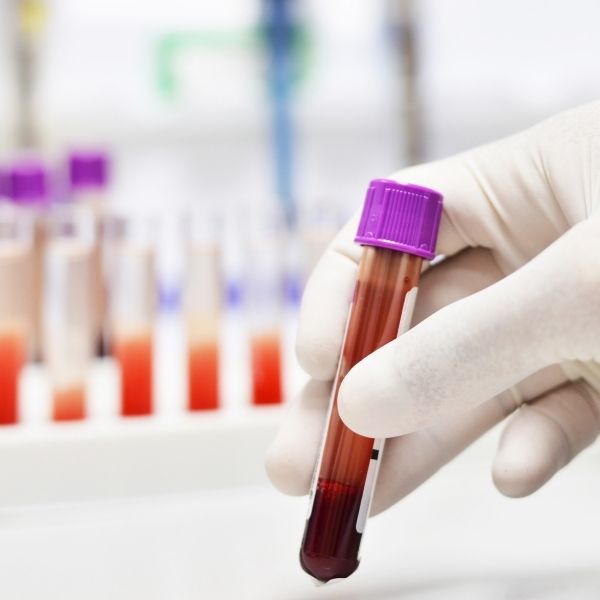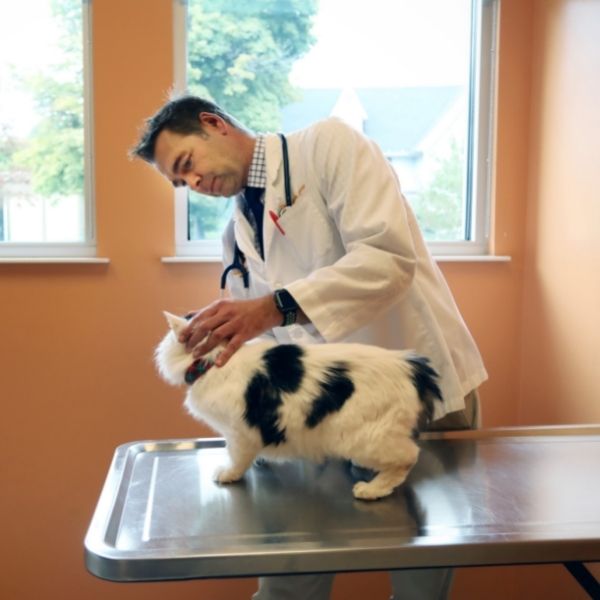Pet In-Hospital Laboratory
Our in-house laboratory allows us to run many diagnostics tests quickly and easily.
Pet In-Hospital Laboratory

Bloodwork
We are able to evaluate blood results for any deviations from normal. We can look at multiple metabolic parameters in a single blood test. Our chemistry panels allow us to monitor for kidney and liver function, glucose, enzymes, and proteins. And of course, there are the ever-important electrolytes. CBC allows for red blood cells, white blood cells, and platelet monitoring. Thyroid testing is also done on our fancy bloodwork machines; hyperthyroidism is a very common condition in cats, while dogs can become hypothyroid. We can also do some therapeutic monitoring for some medications! So cool!
Urinalysis
Urine chemistries let us know about urinary tract infections, diabetes, kidney function, you know all that important stuff!
Fecal Testing
Your pet should have their poop checked at least once a year (3-4 times a year if you have an outdoor cat that just loves to hunt! They have a higher exposure to parasite friends). We need to check for roundworms, hookworms, whipworms, coccidia and do the occasional specialized giardia test. And yes, some of these intestinal parasites can be transmitted to people and can be tough to get rid of so need to get deworming!


Gram Stains
We also can look at other things on your pet, like various types of bacteria and yeast on their skin and ears. We take some samples, check those things out under the microscope. We also can check out if your pet has ringworm, demodex, or scabies, which is never fun (because some of them are transmittable to people!).
Heartworm / Lyme Testing
- These tests are based on your dog’s exposure to both Heartworm and Lyme disease.
- If your puppy is under 6 months of age we can start on preventative without any testing.
- At 1 year of age, we will test them for Heartworm disease, and every year thereafter (it is coupled with our Lyme Disease test). The test is a basic blood test that is run in the hospital. Our recommendations for testing, treatment, and prevention are based on the American Heartworm Society.
- If your pet was exposed to a tick, we would test for Lyme disease 3-4 months post-exposure (other specific tests can be done based on the case and the discretion of the veterinarian).
- We recommend Heartworm, flea, and tick prevention year-round.
- Testing for heartworm disease and Lyme disease will be done yearly.
- Heartworm prevention is also coupled with intestinal dewormers!


FeLV / FIV Testing
These are both viruses of cats. FeLV is a feline leukemia virus, FIV is Feline Immunodeficiency virus. It is transmitted through blood, saliva, or urine of infected cats. Kittens can have this virus transmitted to them from their mother. It is important to get your kittens tested, along with any outdoor or exposed indoor cats.
